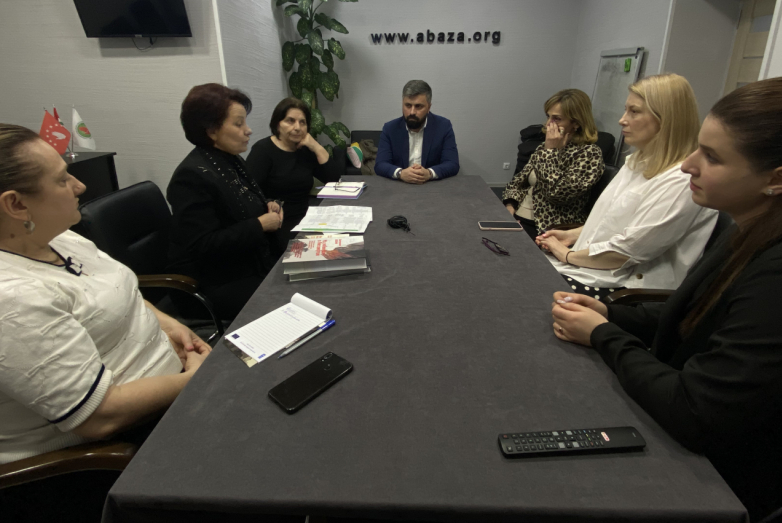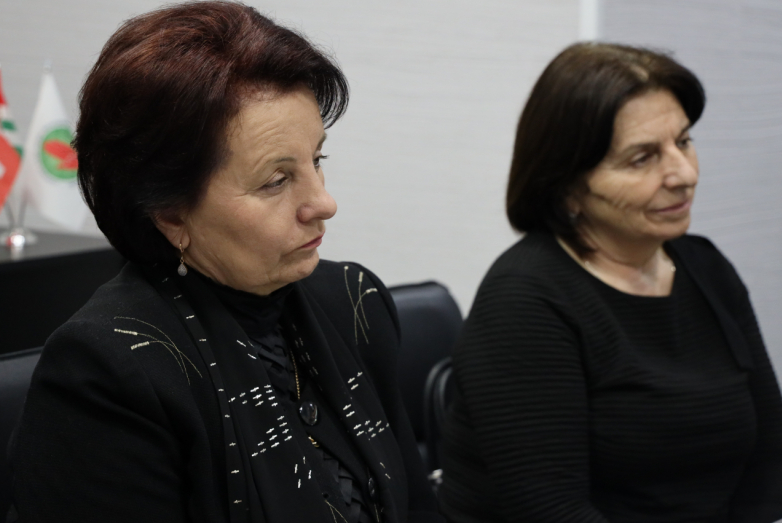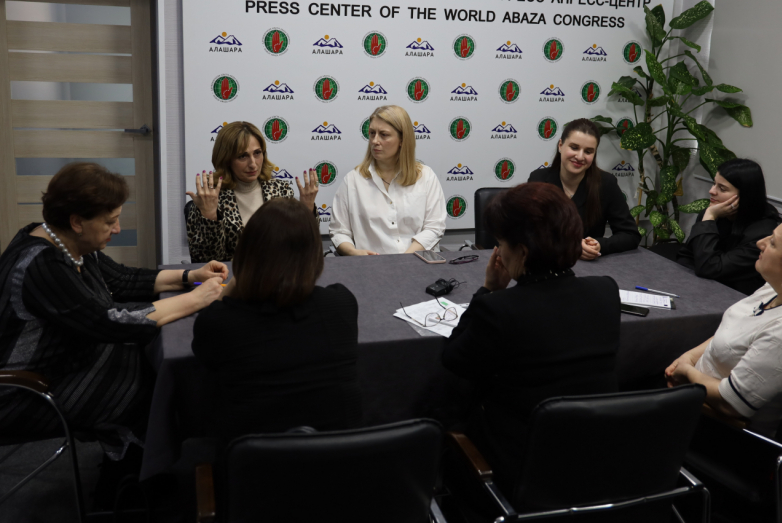Ekaterina Bebia, Chairman of the Coordinating Council of Women at the WAC, held a working meeting on projects aimed at the development of Apsuara.
Projects for the preservation and development of Apsuara were discussed at the Women's Coordinating Council at the World Abaza Congress under the leadership of its chairman Ekaterina Bebia at the Congress press center on Wednesday, March 15.
The meeting was timed to coincide with the address of the Chairman of the Supreme Council of the WAC Mussa Ekzekov to compatriots around the world with the decision to declare the next 5 years of active work of the Congress team "the time of Apsuara Abazara".
The address, in particular, says: "Apsuara Abazara is the basis of the life and prosperity of the Abkhaz-Abaza people and its main ideology. In this regard, I decided to announce the next 5 years of active work of our team as the time of Apsuara Abazara. This means that all our efforts will be aimed at strengthening the foundations of our people."
The meeting was attended by Deputy Minister of Education of the Republic of Abkhazia Ada Kvarchelia, Head of the Institute of Pedagogics Irina Kuakuaskir, Head of the Department of Political Science and Sociology of ASU Emma Gamisonia, teacher of the Abkhaz language and literature Nonna Alamia and students of the Faculty of Journalism of the Abkhazian State University.
The Chairman of the WAC Women's Council, Ekaterina Bebia, told those present about the work of the WAC team and noted that all the activities of the Congress as a whole are aimed not only at uniting Abkhazians and Abaza around the world, but also at preserving and developing their moral and ethnic code - Apsuara.
"The work of the Coordinating Women's Council under the WAC was planned by projects that could not but be related to our ideology - these are matters of the family and children, customs and traditions. At the suggestion of Mussa Ekzekov, the development of Apsuara became the main direction in the activities of the Coordinating Council. However, without our thoughtful and coordinated approach to this issue, it will be more difficult to achieve the expected result," she said.
The meeting participants discussed the importance of a systematic and gradual approach to the issue of conservation and development of the Apsuara. The Head of the Institute of Pedagogics Irina Kuakuaskir noted that the issue of teaching Apsuara in the schools of Abkhazia remains unresolved.
"To convince oneself that the lessons of the native language and literature are sufficient to preserve the Apsuara is unreasonable. We must grab with both hands the systematic introduction of Apsuara lessons in the schools of the republic in order not to allow our ethical national identity dissolve in the process of globalization," Kuakuaskir said.
The head of the Department of Political Science and Sociology of ASU, Emma Gamisonia, believes that Apsuara should be introduced not only into the school curriculum, but also developed as an optional subject for higher educational institutions of Abkhazia.
"I know that Apsuara, as a school subject, is carried out in some rural schools in Abkhazia, where our traditions and customs are still observed in their original form. We all understand that the main pillar of the Apsuara is our villages. If a decision was made in rural schools to introduce such a school subject, then in urban schools, where this problem is acutely felt, it is even more necessary," Gamisonia noted.
Deputy Minister of Education Ada Kvarchelia said that in order to introduce Apsuara as a subject in the school curriculum, "textbooks for different age categories and proper training of teachers" are needed.
Nonna Alamia, a teacher of the Abkhaz language and literature at the Sukhum school No. 4, expressed her solidarity with the opinions expressed.
"As a teacher of the native language and literature, it is obvious to me that it is impossible to tell and explain in depth the customs and traditions of our people in a developed form of a traditional language and literature lesson. By making Apsuara a separate subject, within which we could give examples from fiction and adapt them to modern life, we will be able to revive our customs," she believes.
At the end of the meeting, the participants agreed on several ideas and proposals that will be sent to the Chairman of the Supreme Council of the WAC Mussa Ekzekov in the near future.



to login or register.